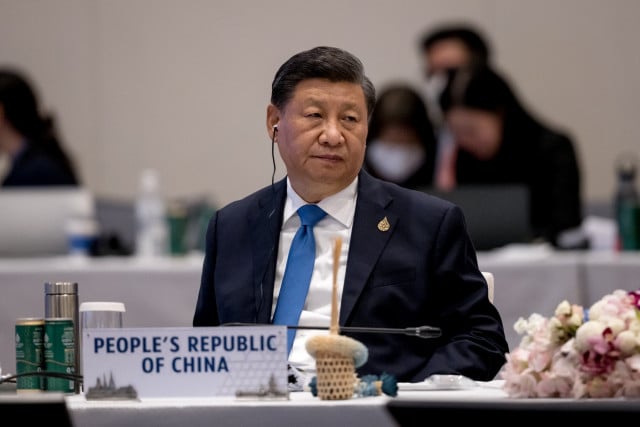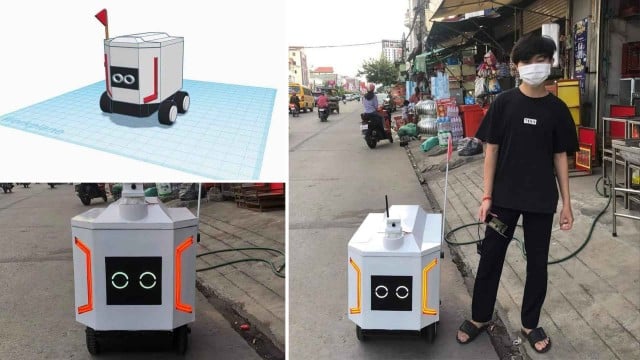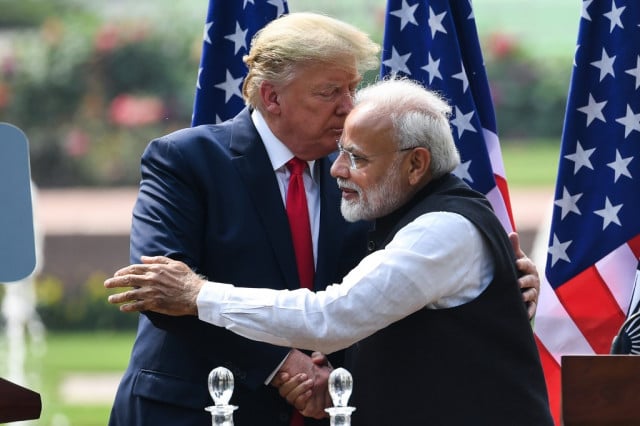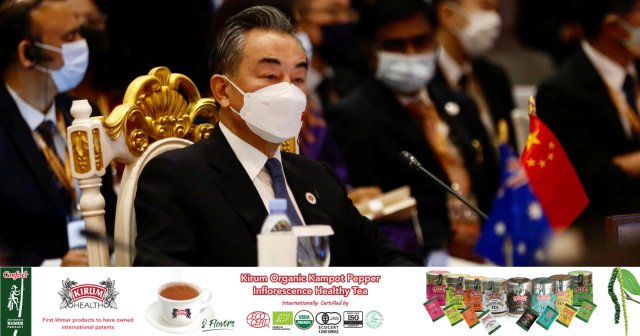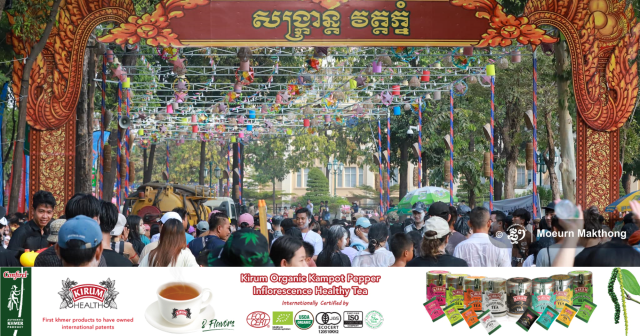Parties Put on Spot for Farmer and Worker Policies
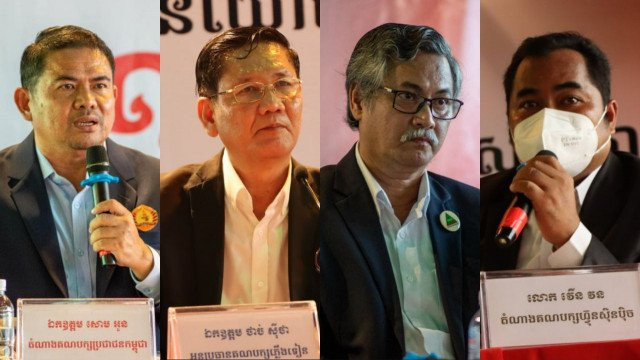
- By Lay Sopheavotey
- and Sam Sopich
- May 6, 2022 6:24 PM
Forum seeks answers as elections loom
PHNOM PENH – Representatives of workers and farmers have urged political parties to provide solutions to issues of labor rights, markets for agricultural produce and social protection as commune elections near.
Union representatives said they wanted to see clear policies to help address issues in the informal and formal economies and on human rights violations.
The concerns were raised during a public forum "Political Party Policies for Labor in Cambodia" on May 1 as the country observed International Labor Day.
The forum was joined by Som Aun, representative of the Cambodian People's Party (CPP), Thach Setha, vice president of the Candlelight Party, Yeng Virak, president of the Grassroots Democratic Party (GDP), and Vernon Peck from FUNCINPEC.
Vorn Pov, president of the Independent Democracy Association of Informal Economy, said people in this sector deserve better social protection, adding that political parties needed to offer a clear policy that can help them.
Pov noted that in 2018, the government gave them a health equity fund card or the Social Security Fund (NSSF) card but the program was suspended in 2020. In the wake of the Covid-19 crisis, informal workers received little support, including financial subsidies from the government.
"The government and local authorities have argued these problems happen because it is difficult to identify informal workers because they have unclear residences,” Pov said. “This makes procedures complicated."
He asked party representatives to demonstrate a firm stance in support of these people.
He urged Som Aun, the Secretary of State of the Ministry of Labor and Vocational Training, to help those working in the informal sector, especially domestic workers, house workers and scavengers.
Theng Savoeun, president of the Cambodian Farmers Community Coalition (CCFC), said there were chronic concerns for farmers about the market for their produce.
He said parties must think again if they want votes from farmers, urging them to work on the establishment of local agricultural market principles and encouraging processing and distribution – all of which can help farmers effectively.
Savoeun also called on the government to focus on points such as the provision of social protection, guarantees on land title, capital, water systems and markets.
Chhim Sithar, president of the NagaWorld Cambodian Workers' Rights Support Union, said protesters continued to be harassed and persecuted when they demanded that employers abide by labor laws.
Sithar called on the ruling party representatives to intervene and resolve the dispute between unions and workers.
On the garment sector, Yang Sophorn, president of the Cambodian Confederation of Trade Unions, said the amendment of the labor law had led to the loss of employment for workers, especially night workers who faced many problems.
“Please think and reflect together. People are not senseless now. In more than a month, we vote and use our ballots in a valuable way,” Sophorn said, adding that there had been bias in resolving disputes because employers always have an advantage over workers.
Dek Sovann, a member of the Cambodian Confederation of Trade Unions, demanded that politicians hold dialogue before national elections and provide feedback to all parties, ratify the elimination of violence, guarantee the right to form local unions and help solve problems of workers and get them out of debt.
Sovann said the CPP must act on these issues, otherwise, the vote would inevitably fall to other parties.
In response, Som Oun said the government had seriously considered wages in all areas of employment and basic freedoms.
However, everything needed time to be resolved, citing the government’s encouragement of the rise in the minimum wage each year which has taken it from more than $40 to more than $190.
On fundamental freedoms, Oun spoke of the government's efforts to protect the rights of citizens and workers, especially with the presence of more than 5,000 local unions.
“It is not the policy of the government, nor the policy of the CPP. It's an individual story of a company that violates the law to lay off unions,” he said.
Candlelight Party vice president Thach Setha expressed his sympathy for workers, farmers and unions who have suffered injustice.
While promising to restore democracy and political stability, Setha said his party would make special efforts to demand the return of the 20 percent EBA for the benefit of workers.
Virak said the Grassroots Democratic Party had a clear policy on supporting workers and independent unions, especially on employment training and provision of a five-month allowance when they are unemployed.
Virak asked for more forums for debates, especially after the commune elections in June to find out whether the politicians fulfill their promises.
FUNCINPEC representative Vonchea spoke of its policy of giving equity cards for the poor regardless of their political affiliation or partisanship.
He acknowledged that there needs to be more support for farmers as they faced complicated problems including the lack of irrigation systems, seeds, farming lands, technology expertise and markets.






